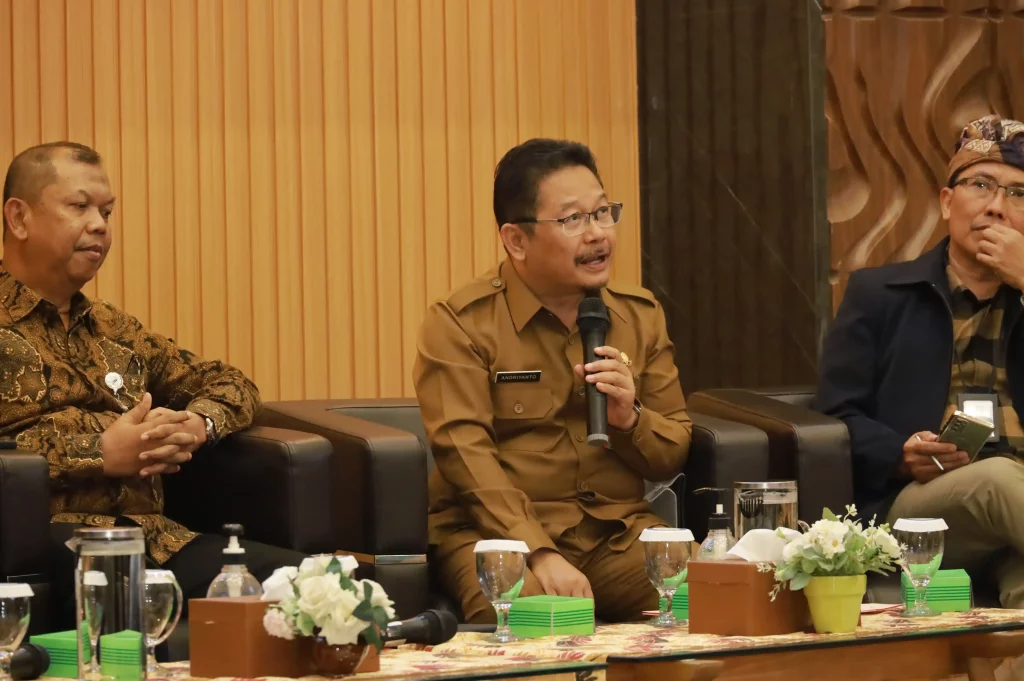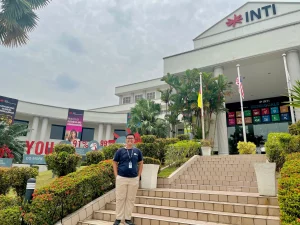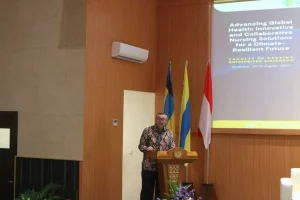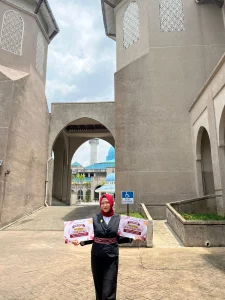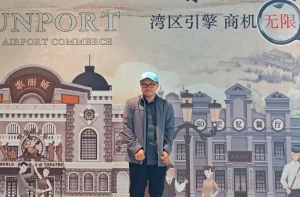UNAIR NEWS – Universitas Airlangga (UNAIR) hosted a talk show titled “Food Security and the Culture of Nutritious Eating” at the Hall of the Management Office, MERR-C Campus, on Monday, December 30, 2024. The event featured notable speakers, including Erik Marsudi Hutomo, owner of Ayam Bakar Pak D; Awaludin Iqbal, Regional Head of BULOG East Java; and Dr. Andriyanto, SH, M.Kes, Head of the East Java Regional Research and Innovation Agency.
Keys to food security
Approaching the topic from various perspectives, the speakers unanimously emphasized that food security must begin with the community. Dr. Andriyanto highlighted the importance of shifting societal attitudes toward nutritious eating habits, asserting that nutrition is not merely about welfare, human rights, or food consumption.
“Nutrition is an investment. Improving public nutrition boosts economic growth. This investment starts with exclusive breastfeeding for the first two years and providing children with nutrient-dense complementary foods,” Dr. Andriyanto stated.
He further explained that addressing malnutrition could mitigate larger issues like stunting. Dispelling the misconception that poverty is the main cause of malnutrition, he noted, “Poverty accounts for only 30% of malnutrition cases, while poor parenting practices are the primary contributor.”
Dr. Andriyanto urged mothers to understand the critical impact of nutrition on their children’s growth and development. Malnutrition can lead to brain damage, reduced learning capacity, and ultimately lower education outcomes.
“Achieving food security isn’t just about providing free meals. It’s about fostering an understanding of how proper nutrition benefits children. Addressing this will, in turn, resolve issues like stunting and improve human capital,” he concluded.
From Indonesia, for Indonesia
Representing the business sector, Erik Marsudi Hutomo shared the challenges faced by micro, small, and medium enterprises (MSMEs) in supporting food security. Issues such as uneven food distribution and inconsistent quality persist, and he emphasized the need for collective efforts.
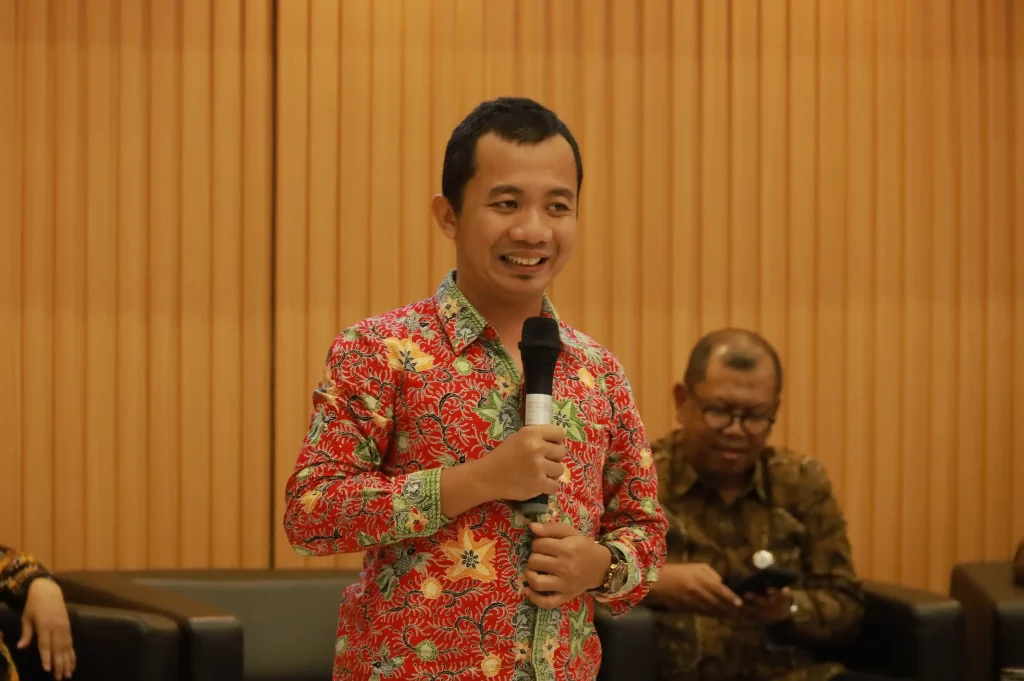
He also stressed the importance of supporting domestic MSMEs, which are critical to Indonesia’s economic growth. “For a stronger economy, we need to prioritize local products. If domestic resources are insufficient, the government must enhance their availability rather than rely on imports. It’s about building Indonesia for Indonesia,” he asserted.
BULOG’s role in mitigating import dependency
Despite Indonesia’s vast agricultural resources and extensive rice fields, the country has witnessed a rise in rice and wheat imports in recent years.
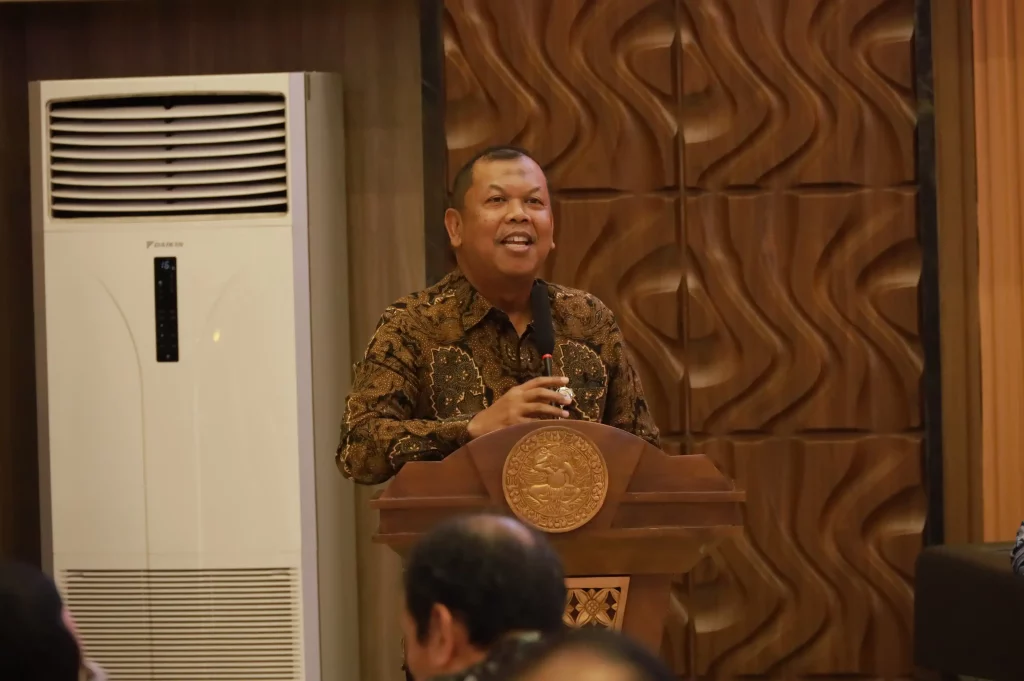
Awaludin Iqbal, the Regional Head of BULOG East Java, attributed this trend to changing consumption patterns. “Increased selectivity in rice preferences and growing demand for wheat-based products like flour are driving these imports, ultimately affecting Indonesia’s food security,” he said.
Iqbal emphasized the need to diversify food sources and encourage the consumption of local carbohydrate alternatives. “Promoting food diversification, alongside strengthening both upstream and downstream sectors, is vital to ensuring food availability and stability,” he concluded.
Author: Syifa Rahmadina Editor: Yulia Rohmawati


